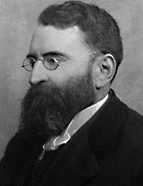

In 1932, he joined the Portuguese Group for the History of Science as a founding member and President of the Lisbon Section. In 1934, he became a corresponding member of the Académie Internationale d’Histoire des Sciences, joined the Organising Committee of the International Congress of the History of Science, held in Coimbra, Portugal, and presented the paper La médicine et les médicins dans l’expansion mondiale des Portugais (Medicine and physicians in the global expansion of the Portuguese) in Coimbra.
A relationship with the former king Manuel led him to preface Os Livros Antigos Portugueses (The Old Portuguese Books) and to write about the codex Regimento Proveitoso contra a Pestenença (Profit-Making Regulations against Pestilence). In 1934, he returned to the study of Rodrigues Lobo in Cartas dos Grandes do Mundo (Letters from the Greats of the World), dated 1612, with a preface and notes to the edition of the codex deposited in the British Museum. He continued to write, preparing new reports for the meetings of the Office International d’Hygiène and leaving literary and/or historical texts.
Egas Moniz focused his historiographical bent on the history of medicine, with a penchant for retrospective diagnoses of historical figures (Lisboa Médica, no. 9, 1939). Eduardo Coelho noted his Cartesian spirit, his “methodical doubt as a principle and rule of the mind”, his recognition of error and, hence, the importance he attached to the medicine of the past, considering that Ricardo Jorge “would never have been the epidemiologist he was if he had not studied in depth the history of the epidemics he described and experienced” (Boletim do Instituto..., 1946, p. 256).
What conceptions of history did he espouse in the context of his time? Let us return to the text Contra um plágio [Against Plagiarism] by Prof. Theophilo Braga. Ricardo Jorge sets out the lines of his historiography in his own defence. He contrasts historical methodology with the romanticist practices attributed to Teófilo: recent historiographical practice had overcome “old sins” and was regenerated by the example of “austere masters” and with “the promulgation of the procedural code for their investigations and elaborations”, through rules that served as a guide to avoid the errors and discrediting of “narrators of the past”. A “history worthy of the name can only be that which is subject to the injunctions of critical analysis and the inspiration of the spirit of science”, a practice to be shaped by the authors of the observational sciences. The experimental method should be applied to history, with the rules of “disinterested curiosity, severe probity, laborious patience, submission to facts, difficulty in believing — in believing oneself as in believing others —, incessant need for criticism, contrast and verification”, to quote G. Lanson. He also refers to Langlois and Seignobos to say that history is “the discipline where it is most necessary for workers to have a clear awareness of the method they use”, a requirement that was lacking “because its subject matter is so popular and accessible to so many”, quoting Georg Waitz — “perhaps no science has suffered as much from dilettantism as history”. He called for “historical propaedeutics, a rigorous and cautious teacher of truth and honesty, proper to everything that is science or claims to be”, and, in a note, reveals his inspiring teachers: “Ch. and V. Motet, P. Lacombe, G. Renard, G. Lanson, G. Monod, Ch. V. Langlois, Ch. Seignobos,” without forgetting Bernheim and Spencer and the “treatise writers on applied logic.”
This work is financed by national funds through FCT - Foundation for Science and Technology, I.P, in the scope of the projects UIDB/04311/2020 and UIDP/04311/2020.
